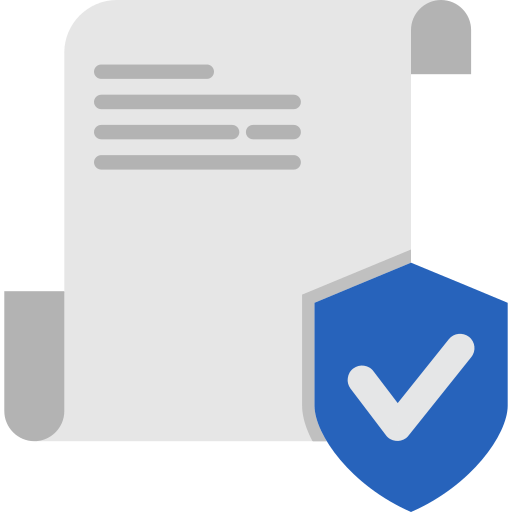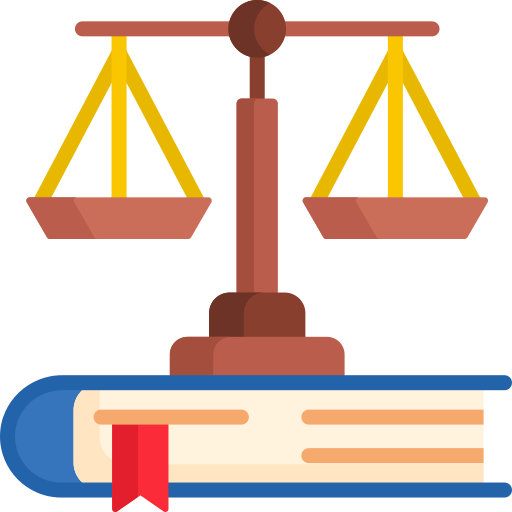- About Us
About Us
Exoben is a dynamic, emerging company headquartered in Delaware with a significant focus on the African continent.
- Projects
Projects
Exoben is a mining corporation headquartered in Delaware, currently managing the operations of six large-scale mining sites located in Ghana. These sites primarily focus on the extraction of valuable minerals such as gold, diamonds, and other precious resources.
- Sustainability
Sustainable Development
At Exoben, our core business philosophy is deeply rooted in the sustainability of our operations and the positive impact we aim to achieve.
- Stakeholders
OUR STAKEHOLDERS
Exoben remains committed to promoting local employment, actively recruiting individuals from the communities where it operates whenever operationally feasible.
- Invest
- Careers
Why Exoben
At Exoben Inc., we are more than just a mining company; we are pioneers in sustainable resource extraction. Our mission is to revolutionize the mining industry through innovation, sustainability, and community engagement.
-
- Employment Strategy
- Diversity and Inclusion
- Advancing Gender Diversity in Ghana
- Protection of Human Rights
- Upholding the Rights of Workers
- Security, Health, and Well-being
- Our Commitment to Performance and Safety
- Commitment Environmental Sustainability
- Hazardous Materials and Waste Management
- Managing Dust, Noise, Blasts, and Vibrations
- Land Stewardship and Biodiversity Conservation
- Comprehensive Mine Closure Planning
- Comprehensive Water Management Strategy
- Energy and Climate Management
- Climate Risk Strategy
- Impact Mitigation and Efficiency Goals
- Future Climate Management
- Investor
Responsible management and oversight
CORPORATE GOVERNANCE
To achieve our company’s vision, we have meticulously crafted our governance procedures to support effective risk management. This framework is fundamental to our operations, enhancing our ability to capitalize on opportunities that arise and ensuring that we effectively meet our financial, environmental, and social objectives.
Our governance structure is built on transparency, accountability, and ethical decision-making. It includes a comprehensive set of policies and practices that guide our actions and ensure compliance with both legal requirements and our internal standards. This structured approach allows us to navigate complex challenges and adapt to market changes while maintaining our commitment to sustainability and corporate responsibility.
By prioritizing robust corporate governance, we position ourselves not only to achieve our immediate goals but also to drive long-term success and stakeholder trust. This commitment supports our pursuit of excellence across all aspects of our operations, contributing to a sustainable and prosperous future for our company and the communities we impact.


Governance and Oversight of the Board
Our Board is rigorously held accountable for the company’s sustainability performance through our well-defined Corporate Governance Framework and Board Charter. These documents delineate management’s responsibilities and establish our standards for ethical and responsible behavior.
Within our organizational structure, the oversight of our company’s sustainability efforts is entrusted to a dedicated Director. This Director’s role is critical in guiding the strategic direction and ensuring that our sustainability objectives are met. Our Senior Leadership team, under this Director’s supervision, is tasked with the operational implementation of our sustainability plan. This plan aligns with our core values, Code of Conduct, and detailed sustainability regulations, ensuring a cohesive approach to our commitments.
Supporting this structure, our Group Manager of Corporate Services and our Manager of Sustainability are pivotal in ensuring that all aspects of our operations adhere to sustainable practices. They are responsible for facilitating the integration of governance, social, and environmental considerations into our daily operations and helping drive performance in these critical areas. This comprehensive oversight mechanism ensures that our sustainability efforts are robust, effective, and aligned with our overarching corporate goals, thereby enhancing overall corporate governance and promoting a culture of accountability and excellence across the organization.
Stakeholder Engagement
At Exoben, we prioritize maintaining open, honest, and continuous dialogue with our stakeholders. This commitment to transparency is essential for the early identification of potential hazards and the collaborative development of solutions to mitigate those risks. By engaging stakeholders in this way, we foster a deeper mutual understanding and trust, which are critical for addressing challenges effectively and efficiently.
Our objective is clear: “to generate material benefits for all of our stakeholders, in fair and equitable proportions.” To achieve this, we emphasize building powerful, efficient, and long-lasting partnerships. These relationships enable us to better understand and meet the expectations of our stakeholders, ranging from local communities and governments to investors and employees.
Through structured engagement initiatives, such as regular meetings, feedback mechanisms, and community forums, we ensure that all voices are heard and considered in our decision-making processes. This approach not only enhances our operational decisions but also strengthens our social license to operate, ensuring that our business activities contribute positively to the societies in which we operate and align with our broader sustainability goals.

Ethical Conduct
At Exoben, we are unwavering in our commitment to uphold the highest standards of honesty and integrity across all aspects of our operations. We adhere strictly to the laws of each country where we operate, as well as international legal standards that apply globally. This commitment is essential not only for maintaining our reputations but also for fostering trust among our stakeholders and ensuring the long-term success of our business.
Our Ethical Conduct Framework is a comprehensive set of guidelines that outline our approach to ethical decision-making and behavior. This framework includes several key components:

Code of Conduct
Our Code of Conduct serves as a cornerstone of our ethical practices, providing clear guidance on the expectations for behavior of our employees and executives.

Compliance Policies
These policies cover a wide range of legal and regulatory requirements, ensuring that our business practices comply with anti-corruption laws, environmental statutes, and labor regulations, among others.

Training Programs
We invest in ongoing education for our employees to reinforce our ethical standards and ensure everyone is equipped to act responsibly.

Reporting Mechanisms
We encourage transparency and accountability through systems that allow employees and other stakeholders to report unethical behavior without fear of retaliation.

Monitoring and Auditing
Regular audits and monitoring are conducted to ensure compliance with our ethical standards and to identify areas where we can improve.
A copy of our Corporate Policies, which includes detailed information on our ethical guidelines, is readily accessible on our website. These documents are crucial for everyone within our organization, as well as our partners and the public, to understand our commitment to ethical practices and the measures we take to uphold them.
Code of Ethics for the Business
Our Code of Ethics for the Business is a cornerstone document that embodies our fundamental principles and clearly defines the ethical, responsible, and lawful behavior expected of everyone associated with our company. This includes not only our employees across all levels but also our Directors, executive management, contractors, suppliers, and business partners who act on our behalf. The code ensures that everyone, without exception, understands their role in maintaining our ethical standards.
Key elements of our Code of Ethics include:

Integrity and Fairness
All personnel are expected to conduct their activities with the highest level of integrity and fairness, ensuring that their actions foster a culture of honesty and trust.

Compliance with Laws
Adherence to all applicable laws and regulations is mandatory, with guidance provided for navigating complex legal environments both locally and internationally.

Respectful Workplace
Our code promotes a workplace where diversity is embraced, and respect is a fundamental part of how we operate.

Conflict of Interest Avoidance
Employees and associates are guided on how to identify and avoid potential conflicts of interest to ensure transparency and fairness in all our business dealings.
Additionally, our Whistleblower Policy is a critical component of our ethical framework. It provides a safe and anonymous mechanism for reporting any form of wrongdoing, unethical behavior, or illegal conduct, as well as any grievances regarding the way our company conducts its business. This policy is designed to protect the identity of the whistleblower and to ensure that all reports are taken seriously, investigated thoroughly, and addressed appropriately without fear of retaliation.
Together, our Code of Ethics and Whistleblower Policy reinforce our commitment to upholding the highest standards of ethical conduct throughout our organization, creating a solid foundation for trust and integrity in all our business practices.
Anti-Corruption Measures and Bribery
Our Anti-Corruption Measures and Bribery (ACMB) Policy and Standards strictly prohibit any forms of bribery and corruption and mandate adherence to all local anti-bribery and anti-corruption laws in every country where we operate. This comprehensive policy applies universally to all our global operations, ensuring a consistent and unwavering commitment to ethical business practices.
Key components of our ACMB Policy include

Zero Tolerance
We maintain a zero-tolerance stance towards bribery and corruption, underscoring our commitment to ethical business conducts.

Comprehensive Training
We provide extensive training programs to ensure that all employees, regardless of their role or location, understand their responsibilities under this policy and the serious implications of breaching it.

Due Diligence
Rigorous due diligence processes are in place for vetting all third parties before entering into business relationships. This helps prevent inadvertent involvement with entities that might engage in corrupt practices.

Monitoring and Enforcement
Regular audits and monitoring mechanisms are employed to detect and address potential violations of our anti-corruption policies. These mechanisms are essential for maintaining compliance and detecting areas in need of improvement.

Reporting Mechanisms
A confidential reporting system is available for employees and third parties to report suspected corruption or bribery, ensuring that potential issues can be addressed swiftly and effectively without fear of reprisal.
Transparency
Our organization is deeply committed to upholding a standard of open and transparent communication regarding both our financial and sustainability performance. This commitment encompasses all aspects of our dealings, especially our interactions with stakeholders concerning both financial and non-financial contributions. Such contributions include in-kind support, taxes, royalties, and various payments made to government bodies.
We actively engage in collaborative efforts with respective governments to foster greater transparency concerning the flow of revenues, the details of mining contracts, and the identification of beneficial ownership of license holders. These collaborative initiatives are vital for maintaining clarity and building trust between the mining industry, governmental authorities, and the wider community.
Furthermore, in an effort to promote accountability and provide stakeholders with a clear view of our economic impact, we publicly disclose all our tax, royalty, and other governmental payments annually. These disclosures are detailed by country and project, thereby enhancing the visibility of income flows throughout our value chain.
By taking these steps, we aim not only to adhere to best practices in transparency but also to set a benchmark for industry standards. This approach helps us build and maintain trust with all our stakeholders, ensuring that our operations are perceived as both responsible and beneficial to the communities and countries in which we operate.


The Management of Our Supply Chain
In our operations, the supply chain is a critical component that spans across multiple regions including Africa, Europe, Asia, and North America. We source a diverse array of products and services from these areas, ranging from skilled labor and raw materials to direct and indirect materials, as well as various supplementary services. This extensive procurement network is essential for our day-to-day operations and strategic initiatives.
Our suppliers are integral to our operations and are carefully selected through our Contracts and Supply Framework. This framework is deeply aligned with our core values, our Ethical Conduct Framework, and stringent environmental and social criteria, ensuring that our supply chain not only supports our operational needs but also reflects our commitment to ethical practices and sustainability.
The successful implementation of our strategies heavily relies on the robust partnerships we have cultivated with our suppliers and contractors. Our objective is to develop long-term, stable, and cooperative relationships, particularly with local suppliers situated near our operational sites. By doing so, we not only streamline our logistical processes but also contribute to local economic development.
We are committed to supporting local suppliers in the communities where we operate by helping them expand their capacities and create more local employment opportunities. This not only helps in building a resilient local economy but also fosters community goodwill and sustainable development. Through these efforts, we aim to create a supply chain that is not only efficient and reliable but also socially responsible and beneficial to local communities.
Policies, Responsibilities, and Standards
Our organization employs a comprehensive framework of interconnected policies, management systems, and standards to meticulously control and optimize our environmental and social performance. This framework is designed to ensure that our operations not only comply with, but exceed, the necessary regulatory requirements and align with best practices in sustainability.
A key component of our framework is the incorporation of principles from the International Standard for Occupational Health and Safety. These principles are integrated into our policies and regulations to promote the highest levels of safety and health at all our operational sites.
Moreover, our commitment to environmental stewardship and social responsibility is further reinforced through our rigorous adherence to the Environmental and Social Impact Assessments (ESIAs). These assessments are conducted in strict accordance with international standards and are critical in ensuring that each of our operations fulfills the commitments outlined during their planning phases.
These policies and assessments help us maintain a steadfast focus on minimizing our environmental footprint and enhancing the social well-being of the communities in which we operate. By doing so, we not only meet our legal and ethical obligations but also contribute positively to global sustainability efforts, ensuring that our business practices are both responsible and beneficial.


Assurance
Our organization is deeply committed to the rigorous assessment and continuous improvement of our sustainability policies and standards. To ensure their design and effectiveness meet our high standards, the Internal Audit department conducts thorough evaluations. These assessments are crucial in identifying any deficiencies within our sustainability frameworks, and upon detection, comprehensive management plans are developed to address these shortcomings.
The Internal Audit department executes annual assurance activities that are meticulously planned and aligned with an internal audit plan approved by the Audit Committee. These activities are essential for maintaining the integrity and effectiveness of our internal processes and systems.
In addition to our internal audits, we engage third-party assurance providers annually to evaluate our sustainability strategy and management systems at each operational site. This external review is vital for verifying the accuracy and reliability of our public disclosures regarding our sustainability commitments and activities. It ensures that all statements made by our organization reflect our true performance and adherence to our goals.
These third-party evaluations are not only conducted for ongoing operations but also extend to our development projects. This holistic approach allows us to maintain transparency and accountability across all stages of our operations, reinforcing our commitment to sustainability and ethical business practices. Through these rigorous assurance processes, we strive to uphold and exceed the expectations of our stakeholders and ensure the long-term viability of our projects and operations.
The Management of Risk and Opportunity
Our Risk Management Framework is fundamental in protecting and enhancing both the economic and social value within our organization. This framework provides a standardized, organization-wide approach that aids in identifying, prioritizing, and managing risks efficiently. It also facilitates the effective allocation of resources to ensure that our operations are both safe and successful.
The framework operates by first identifying potential risks and then evaluating them based on their likelihood and potential impact. This evaluation covers a comprehensive range of impact areas including:
People
Assessing risks related to the health, safety, and well-being of our employees and contractors.
Environment
: Evaluating potential negative effects on the natural environment and implementing strategies to mitigate these risks.
Financial
Identifying financial exposures that could affect our profitability and economic stability.
Community
Considering the impacts on local communities and ways to enhance positive outcomes while minimizing adverse effects.
Reputation
Managing risks that could affect our public image and the trust stakeholders place in us.
Compliance / Legal
Ensuring all operations comply with relevant laws and regulations to avoid legal penalties and compliance issues.
Beyond managing risks, our framework actively seeks to identify and capitalize on opportunities that arise from our risk management processes. This proactive approach not only mitigates potential threats but also enhances our ability to seize opportunities that contribute to our strategic objectives and overall success.
By systematically managing risks and opportunities, we ensure that our operations remain resilient and adaptive, maintaining a balance between achieving immediate objectives and securing long-term sustainability and growth.
Metrics and Objectives
Annually, our organization establishes a set of Key Performance Indicators (KPIs) designed to elevate our performance by drawing insights from industry benchmarks and peer evaluations. These KPIs are meticulously integrated into both our Group and operational scorecards, ensuring that sustainability factors are heavily weighted in the evaluation of our overall performance outcomes.
The process involves a strategic distribution of these KPIs across the organization, embedding them into the performance metrics for both individual employees and contractors. This systematic approach ensures that every level of the organization is aligned with our core objectives and contributes directly to our collective success.
Moreover, our scorecards are closely linked to executive remuneration packages. This linkage is designed to incentivize high performance and align executive interests with both short-term achievements and long-term strategic goals. By tying compensation to key performance outcomes, we foster a culture of accountability and continuous improvement.
This comprehensive use of performance metrics not only helps in monitoring and assessing operational effectiveness but also in driving enhancements across all areas of our business. It encourages a holistic view of performance that encompasses financial results, operational efficiency, environmental stewardship, and social responsibility, thereby supporting our commitment to excellence and sustainable growth.

